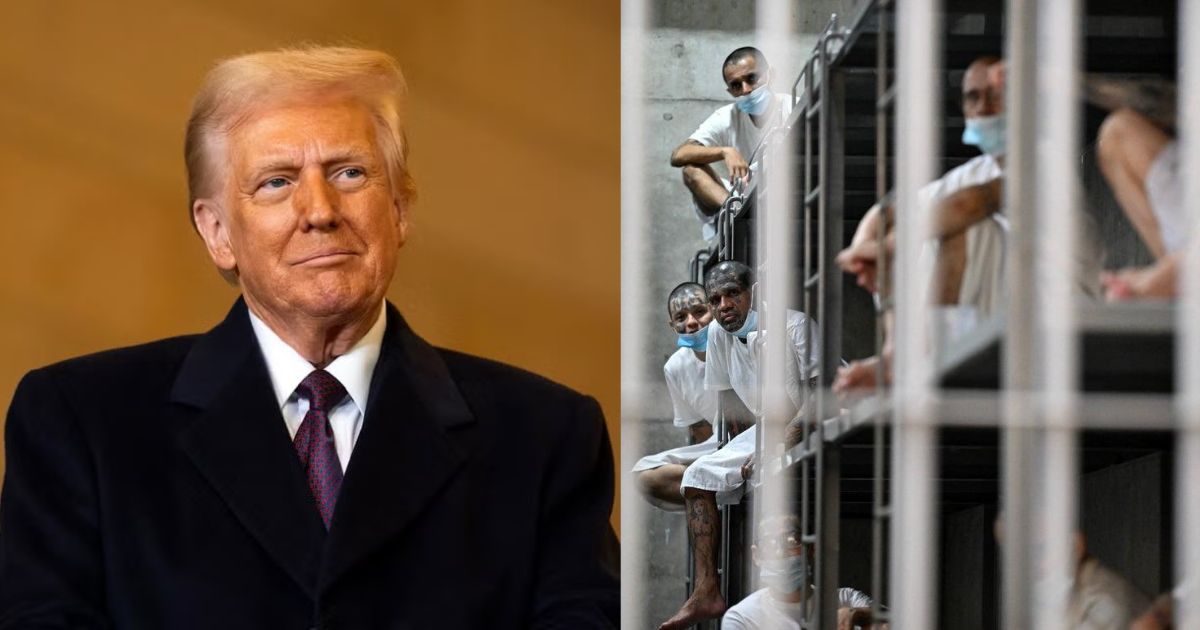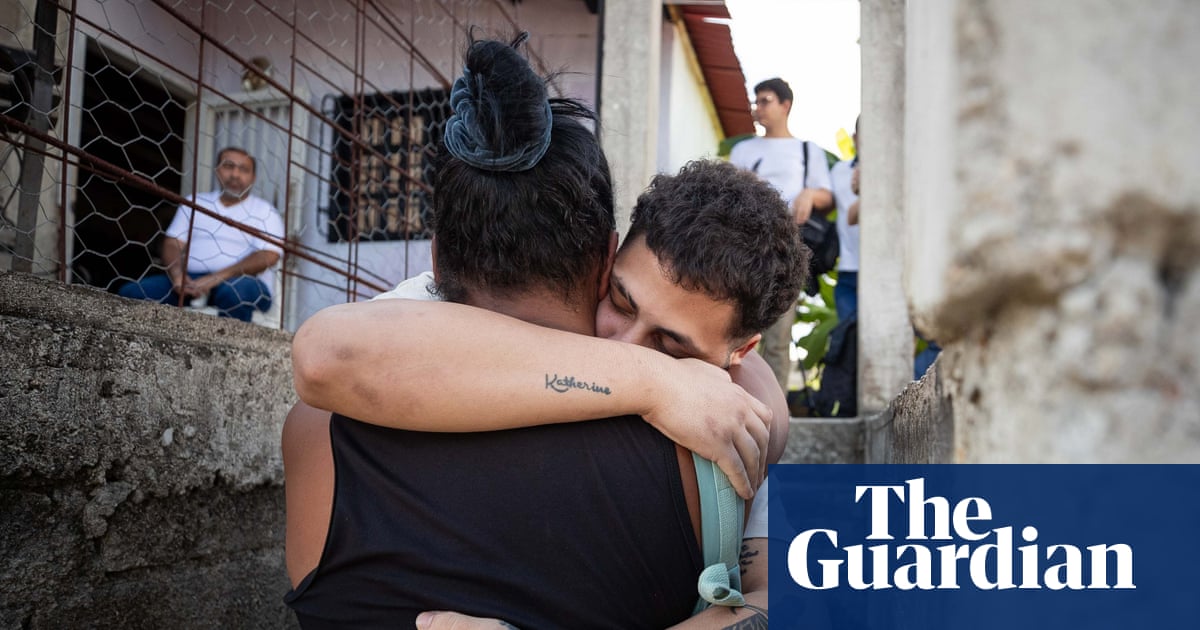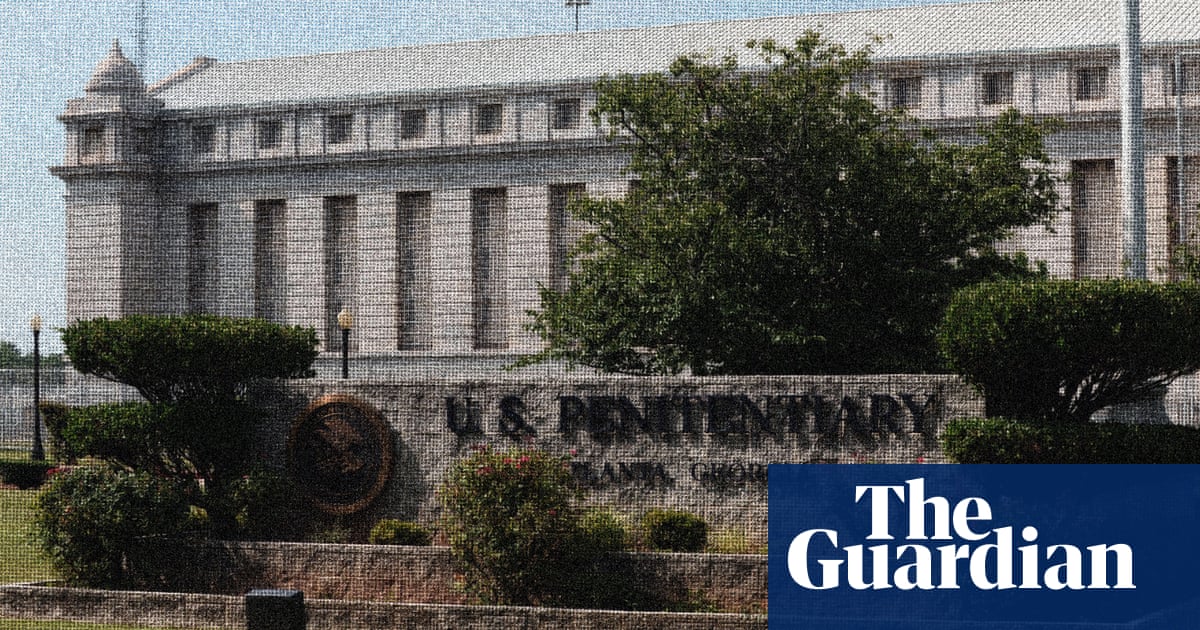Exclusive: For roughly 100 days, Thomas says he faced harsh detention conditions, despite agreeing to deportation
Thomas, a 35-year-old tech worker and father of three from Ireland, came to West Virginia to visit his girlfriend last fall. It was one of many trips he had taken to the US, and he was authorized to travel under a visa waiver program that allows tourists to stay in the country for 90 days.
He had planned to return to Ireland in December, but was briefly unable to fly due to a health issue, his medical records show. He was only three days overdue to leave the US when an encounter with police landed him in Immigration and Customs Enforcement (Ice) custody.
From there, what should have been a minor incident became a nightmarish ordeal: he was detained by Ice in three different facilities, ultimately spending roughly 100 days behind bars with little understanding of why he was being held – or when he’d get out.
Farm worker who died after California Ice raid was ‘hardworking and innocent’, family saysRead more
“Nobody is safe from the system if they get pulled into it,” said Thomas, in a recent interview from his home in Ireland, a few months after his release. Thomas asked to be identified by a nickname out of fear of facing further consequences with US immigration authorities.
Despite immediately agreeing to deportation when he was first arrested, Thomas remained in Ice detention after Donald Trump took office and dramatically ramped up immigration arrests. Amid increased overcrowding in detention, Thomas was forced to spend part of his time in custody in a federal prison for criminal defendants, even though he was being held on an immigration violation.
Thomas was sent back to Ireland in March and was told he was banned from entering the US for 10 years.
Thomas’s ordeal follows a rise in reports of tourists and visitors with valid visas being detained by Ice, including from Australia, Germany, Canada and the UK. In April, an Irish woman who is a US green card holder was also detained by Ice for 17 days due to a nearly two-decade-old criminal record.
The arrests appear to be part of a broader crackdown by the Trump administration, which has pushed to deport students with alleged ties to pro-Palestinian protests; sent detainees to Guantánamo Bay and an El Salvador prison without presenting evidence of criminality; deported people to South Sudan, a war-torn country where the deportees had no ties; and escalated large-scale, militarized raids across the US.
‘I thought I was going home’
In an exclusive interview with the Guardian, Thomas detailed his ordeal and the brutal conditions he witnessed in detention that advocates say have long plagued undocumented people and become worse under Trump.
Thomas, an engineer at a tech firm, had never had any problems visiting the US under the visa waiver program. He had initially planned to return home in October, but badly tore his calf, suffered severe swelling and was having trouble walking, he said. A doctor ordered him not to travel for eight to 12 weeks due to the risk of blood clots, which, he said, meant he had to stay slightly past 8 December, when his authorization expired.
He obtained paperwork from his physician and contacted the Irish and US embassies and Department of Homeland Security (DHS) to seek an extension, but it was short notice and he did not hear back, he said.
“I did everything I could with the online tools available to notify the authorities that this was happening,” he said, explaining that by the time his deadline to leave the US had approached, he was nearly healed and planning to soon return. “I thought they would understand because I had the correct paperwork. It was just a couple of days for medical reasons.”
He might have avoided immigration consequences, if it weren’t for an ill-timed law enforcement encounter.
Thomas and his girlfriend, Malone, were visiting her family in Savannah, Georgia, when Thomas suffered a mental health episode, he and Malone recalled. The two had a conflict in their hotel room and someone overheard it and called the police, they said.
Malone, who requested to use her middle name to protect her boyfriend’s identity, said she was hoping officers would get him treatment and did not want to see him face criminal charges. But police took him to jail, accusing him of “falsely imprisoning” his girlfriend in the hotel room, a charge Malone said she did not support. He was soon released on bond, but instead of walking free, was picked up by US immigration authorities, who transported him 100 miles away to an Ice processing center in Folkston, Georgia. The facility is operated by the private prison company Geo Group on behalf of Ice, with capacity to hold more than 1,000 people.
Thomas was given a two-page removal order, which said he had remained in the US three days past his authorization and contained no further allegations. On 17 December, he signed a form agreeing to be removed.
But despite signing the form he remained at Folkston, unable to get answers about why Ice wasn’t deporting him or how long he would remain in custody. David Cheng, an attorney who represented Thomas, said he requested that Ice release him with an agreement that he’d return to Ireland as planned, but Ice refused.
At one point at Folkston, after a fight broke out, officers placed detainees on lockdown for about five days, cutting them off from contacting their families, he said. Thomas said he and others only got approximately one hour of outdoor time each week.
In mid-February, after about two months in detention, officers placed him and nearly 50 other detainees in a holding cell, preparing to move them, he said: “I thought I was finally going home.” He called his family to tell them the news.
Instead, he and the others were shackled around their wrists, waists and legs and transported four hours to a federal correctional institution in Atlanta, a prison run by the US Bureau of Prisons (BoP), he said.
BoP houses criminal defendants on federal charges, but the Trump administration, as part of its efforts to expand Ice detention, has been increasingly placing immigrants into BoP facilities – a move that advocates say has led to chaos, overcrowding and violations of detainees’ rights.
‘We were treated less than human’
Thomas said the conditions and treatment by BoP were worse than Ice detention: “They were not prepared for us whatsoever.”
He and other detainees were placed in an area with dirty mattresses, cockroaches and mice, where some bunkbeds lacked ladders, forcing people to climb to the top bed, he said.
BoP didn’t seem to have enough clothes, said Thomas, who got a jumpsuit but no shirt. The facility also gave him a pair of used, ripped underwear with brown stains. Some jumpsuits appeared to have bloodstains and holes, he added.
Each detainee was given one toilet paper roll a week. He shared a cell with another detainee, and he said they were only able to flush the toilet three times an hour. He was often freezing and was given only a thin blanket. The food was “disgusting slop”, including some kind of mysterious meat that at times appeared to have chunks of bones and other inedible items mixed in, he said. He was frequently hungry.
“The staff didn’t know why we were there and they were treating us exactly as they would treat BoP prisoners, and they told us that,” Thomas said. “We were treated less than human.”
He and others requested medical visits, but were never seen by physicians, he said: “I heard people crying for doctors, saying they couldn’t breathe, and staff would just say, ‘Well, I’m not a doctor,’ and walk away.” He did eventually receive the psychiatric medication he requested, but staff would throw his pill under his cell door, and he’d sometimes have to search the floor to find it.
Detainees, he said, were given recreation time in an enclosure that was partially open to fresh air, but resembled an indoor cage: “You couldn’t see the outside whatsoever. I didn’t see the sky for weeks.” He had sciatica from an earlier hip injury and said he began experiencing “unbearable” nerve pain as a result of the lack of movement.
Thomas said it seemed Ice’s placements in the BoP facility were arbitrary and poorly planned. Of the nearly 50 people taken from Ice to BoP facility, about 30 of them were transferred back to Folkston a week later, and the following week, two from that group were once again returned to the BoP facility, he said.
In the BoP facility, he said, Ice representatives would show up once a week to talk to detainees. Detainees would crowd around Ice officials and beg for case updates or help. Ice officers spoke Spanish and English, but Middle Eastern and North African detainees who spoke neither were stuck in a state on confusion. “It was pandemonium,” Thomas said.
Thomas said he saw a BoP guard tear up “watching the desperation of the people trying to talk to Ice and find out what was happening”, and that this officer tried to assist people as best as she could. Thomas and Malone tried to help asylum seekers and others he met at the BoP facility by connecting them to advocates.
Thomas was also unable to speak to his children, because there was no way to make international calls. “I don’t know how I made it through,” he said.
In mid-March, Thomas was briefly transferred again to a different Ice facility. The authorities did not explain what had changed, but two armed federal officers then escorted him on a flight back to Ireland.
The DHS and Ice did not respond to inquiries, and a spokesperson for the Geo Group declined to comment.
Donald Murphy, a BoP spokesperson, confirmed that Thomas had been in the bureau’s custody, but did not comment about his case or conditions at the Atlanta facility. The BoP is now housing Ice detainees in eight of its prisons and would “continue to support our law enforcement partners to fulfill the administration’s policy objectives”, Murphy added.
‘This will be a lifelong burden’
It’s unclear why Thomas was jailed for so long for a minor immigration violation.
“It seems completely outlandish that they would detain someone for three months because he overstayed a visa for a medical reason,” said Sirine Shebaya, executive director of the National Immigration Project, who is not involved in his case and was provided a summary by the Guardian. “It is such a waste of time and money at a time when we’re hearing constantly about how the government wants to cut expenses. It seems like a completely incomprehensible, punitive detention.”
Ice, she added, was “creating its own crisis of overcrowding”.
Jennifer Ibañez Whitlock, senior policy counsel with the National Immigration Law Center, also not involved in the case, said, in general, it was not uncommon for someone to remain in immigration custody even after they’ve accepted a removal order and that she has had European clients shocked to learn they can face serious consequences for briefly overstaying a visa.
Ice, however, had discretion to release Thomas with an agreement that he’d return home instead of keeping him indefinitely detained, she said. The Trump administration, she added, has defaulted to keeping people detained without weighing individual factors of their cases: “Now it’s just, do we have a bed?”
Republican lawmakers in Georgia last year also passed state legislation requiring police to alert immigration authorities when an undocumented person is arrested, which could have played a role in Thomas being flagged to Ice, said Samantha Hamilton, staff attorney with Asian Americans Advancing Justice-Atlanta, a non-profit group that advocates for immigrants’ rights. She met Thomas on a legal visit at the BoP Atlanta facility.
Hamilton said she was particularly concerned about immigrants of color who are racially profiled and pulled over by police, but Thomas’s ordeal was a reminder that so many people are vulnerable. “The mass detentions are terrifying and it makes me afraid for everyone,” she said.
Thomas had previously traveled to the US frequently for work, but now questions if he’ll ever be allowed to return. “This will be a lifelong burden,” he said.
Malone, his girlfriend, said she plans to move to Ireland to live with him. “It’s not an option for him to come here and I don’t want to be in America anymore,” she said.
Since his return, Thomas said he has had a hard time sleeping and processing what happened: “I’ll never forget it, and it’ll be a long time before I’ll be able to even start to unpack everything I went through. It still doesn’t feel real. When I think about it, it’s like a movie I’m watching.” He said he has also struggled with long-term health problems that he attributes to malnutrition and inappropriate medications he was given while detained.
He was shaken by reports of people sent away without due process. “I wouldn’t have been surprised if I ended up at Guantánamo Bay or El Salvador, because it was so disorganized,” he said. “I was just at the mercy of the federal government.”
Irish tourist jailed by Ice for months after overstaying US visit by three days: ‘Nobody is safe’
Exclusive: For roughly 100 days, Thomas says he faced harsh detention conditions, despite agreeing to deportation
https://www.theguardian.com/us-news/2025/jul/15/irish-tourist-ice-detention




